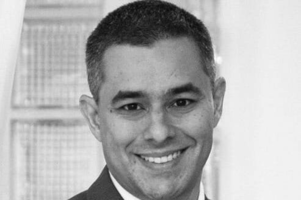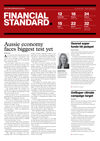Richest 10% drive global warming: ResearchBY KARREN VERGARA | FRIDAY, 9 MAY 2025 12:35PMNew research that examined wealth-based greenhouse gas (GHG) emissions shows that the world's richest people are fuelling two thirds of global warming. Authors Sarah Schöngart, Zebedee Nicholls and Roman Hoffmann et al quantified the link between wealth disparities and climate impacts between 1990 and 2020. In their research, High-income groups disproportionately contribute to climate extremes worldwide, they found that GHG emissions from the wealthiest 10% in the US and China has led to a two- to threefold increase in heat extremes across vulnerable regions. The authors stated that, in 2020, global mean temperature (GMT) was 0.61°C higher compared to 1990. They traced about 65% of this increase to the world's top 10% richest people. For extreme events, they found that this cohort contributed seven times the average to increases in monthly one-in-100-year heat extremes globally and six times more to Amazon droughts. "Wealth-based emissions comprise private consumption and investment in capital formation across production sectors that supply goods and services consumed by society. Recognising the associated unequal warming contributions can inform policy interventions," the researchers said. "For example, deliberation over a coordinated global wealth tax can draw on this work, illustrating the climate co-benefits of attenuating stark wealth-based disparities in climate impact responsibilities." Meanwhile, those in low-income regions incur the brunt of the harm caused by emissions concentrated among wealthier populations worldwide. From an adaptation and loss-and-damage perspective, this provides a basis for policy discussions around contributions to compensatory and preventative measures, they said. The authors cite other research that states that warming attributable to the investments of the wealthy underscores the need to realign financial flows to meet global climate goals, and that efforts to redirect these flows should also consider the shared responsibilities of governments to expedite systemic changes in financial and regulatory structures. "This is particularly relevant for the wealthiest 1% and 0.1%, whose transboundary contributions to worsening local extremes arise primarily through investments, rather than consumption," they said. |

Santos has received a non-binding $8.89 per share cash offer from the XRG Consortium, led by XRG P.J.S.C., a subsidiary of Abu Dhabi National Oil Company (ANDOC), alongside Abu Dhabi's sovereign wealth fund ADQ and US private equity firm Carlyle.
The best-functioning boards are future thinkers, understand their ESG responsibilities and are able to show their "battle scars," according to two governance experts.
While funding for impact startups has broadly declined, those operating in climate, health and people has seen funding levels improve compared to three years ago, according to the Impact Startups Benchmark Report 2025.
Investors have a significant role to play in helping to move the dial on executive remuneration, aiming to increase fairness and reduce inequality.
















